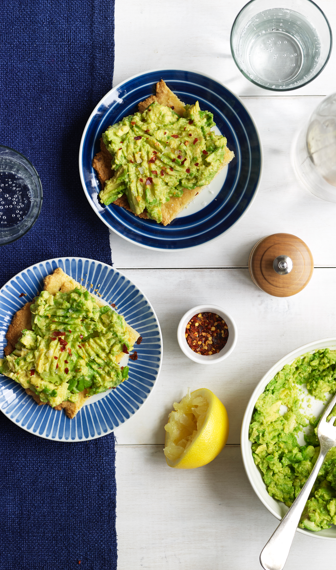You may have heard about a recent study published in the Archives of Internal Medicine, which compared the changes in mood of subjects who had followed either a low-fat or low-carbohydrate diet for a year. The researchers, led by Grant D. Brinkworth, concluded that throughout the period, a low-fat plan improved overall feelings of well-being more than a low-carb plan did. Both the researchers and the media got it wrong—and in several critical ways. Here’s how:
1. Inaccurate reporting: The media reported conclusions and omitted findings that were critically important to understanding the conclusions. For instance, twice as many people in the low-carb group were being treated for depression at the beginning of the Brinkworth study. This fact indicates that the conclusions should be viewed cautiously.
2. Too much protein. The low-carb dieters were told to consume an excessive amount of protein and were inappropriately limited with regard to calories and salt intake. Daily protein intake of 35 percent of total intake would push the upper limit of tolerance. It is particularly too high for weight maintenance and liable to lead make one feel poorly, which is likely to negatively impact mood.
3. Too little salt. When you consume less than 50 grams of Net Carbs a day, your body excretes more salt and water. This is great when you’ve been bloated from holding water in your tissues, but it’s important to replace water and electrolytes (including sodium [salt]) in order to feel your best. We recommend drinking broth (not the low-sodium kind) or making sure to add salt or soy sauce to foods to avoid sodium depletion.
4. Conflicting research. This is not the first study to examine the impact of diet on mood. Interestingly, a 2007 study by other researchers showed that after 24 weeks, people on either low-fat or low-carb diets showed improvements in mood, but the improvements were greater in the low-carb group. Eric C. Westman, M.D., of the Lifestyle Medicine Clinic at Duke University Medical Center, in Durham, N.C., who helped conduct the 2007 research, says the two studies have one key difference. In his study, people on a low-carbohydrate diet were allowed to eat as much as they wanted.
“The main difference between their methodology and our study methodology was that they restricted the amount that people could eat and we did not,” says Dr. Westman. “That’s an important thing to focus on because…if you’re told you can’t eat as much as you want, this may put some damper on your mood, so to speak.”
It’s worth remembering that the Atkins Diet is not a low-calorie program. Nor, with a typical daily intake of 13 to 22 ounces of protein foods—which equates to about 20 to 25 percent of total daily calories—can Atkins hardly be considered a high-protein diet. Instead, we regard it as an optimal protein diet. Today’s Atkins Diet places greater emphasis on a balance of the right healthy foods and active lifestyle, allowing more flexibility when it comes to incorporating adequate protein and healthy carbs.
And as far as mood goes? If you want to conduct your own research, just eat the typical diet most Americans consume for a week or two and we’re sure that you’ll agree that you feel better on Atkins.

